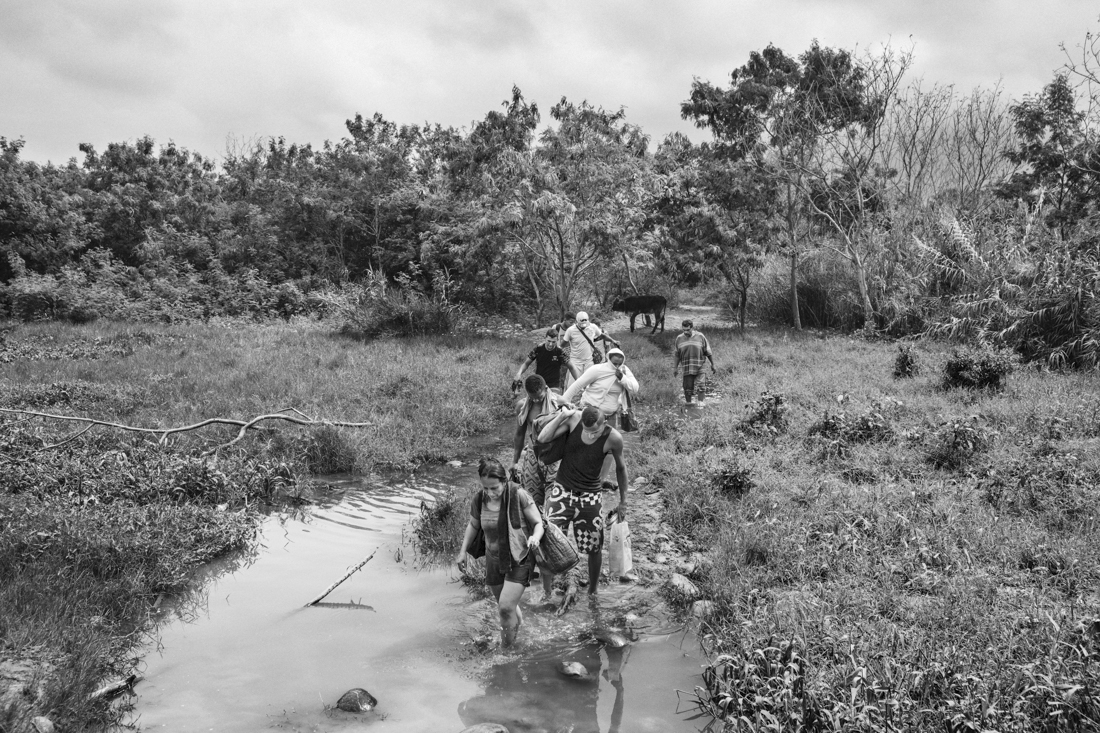Talent of the Year 2020 - FINALIST: Nicolo Filippo Rosso
Photo © Nicolo Filippo Rosso
Nicolo Filippo Rosso
Exodus
Support this photographer - share this work on Facebook.
The massive flow of Venezuelan migrants to Colombia is flipping. Since March, part of the 4.5 million Venezuelans who fled their country is making their way back home. Some are boarding buses that the Colombian government has provided. Others, finding out that day-to-day survival has become impossible, even decide to walk back home.
I want to document the effect of the pandemic on this migration while lockdowns on both sides have inverted this movement of people.
An acute political and socio-economic crisis in Venezuela, at least dating back to 2016, led to an increasing outflow of migrants from the country. The Venezuelans that I’ve met say they were compelled to leave because of insecurity and violence, as well as the lack of access to food, medicine, and basic services, after losing their income. Colombia is by far the country most impacted by this exodus. According to the United Nations Refugee Agency (UNHCR), at least 1.6 million Venezuelans are in Colombia, a number probably grossly underestimated since not everyone is registered.
Two years ago, I decided to document this story and self-funded the project Exodus. At first spending weeks, and then months at a time, in some of the border areas, I traveled on migration routes alongside migrants who call themselves “the walkers.” They were taking a long journey from the eastern Colombian border, through the Andes, up to the capital city, Bogotá.
The World Food Program now warns the Covid-19 pandemic could provoke an unprecedented famine, hitting countries that are already suffering from poverty and hunger, like Venezuela and Colombia. As people collide in a world put upside down by a new threat, pressures breed greater instability. It could, for example, trigger greater hatred and xenophobia from the Colombian civil population. The state of sanitary emergency produced by the pandemic has left people in urgent need, pushing some into illicit and criminal survival strategies.
As Colombia prepares to lift the lockdown, I plan to document the reverse migration, as a local photographer. I will once again follow the walkers, taking the trip in the opposite direction this time, driving by car from Bogotá, where I live, to the main border, a town called Cúcuta. High up in the Colombian mountains, international aid is scant, and the cold, challenging for Venezuelans who are used to much warmer Caribbean weather. At night, they sleep in abandoned buildings or houses of compassionate Colombians.
I will then travel to La Guajira’s border, at the northern tip of the country. On the outskirts of Uribia, an indigenous town, as many as ten thousand migrants and indigenous Wayuu have been camping for two years on top of a garbage dump in the desert. In migrant shantytowns, people have no access to running water or sanitation. Without nearby hospitals, adequate testing, and the possibility of individual isolation, a single case of Covid-19 could quickly contaminate entire communities.
My goal is to provide an intimate look into the migrants’ daily life during the pandemic: those who leave and those who stay.
With the support of this grant, I will be able to cover part of the travel cost to continue this project throughout 2020 and 2021.
About author:
Nicoló Filippo Rosso (b. 1985) is an Italian documentary photographer based in Colombia. He graduated with a degree in Literature at the Universitá Degli Studi Di Torino, in Italy. In 2011, he became interested in photography while living in an indigenous community in the Putumayo region, in the Amazon basin.
His work is committed to long-term projects and he works on editorial assignments for clients such as Bloomberg News, The Washington Post, BusinessWeek, Le Point, Der Spiegel, Sette Corriere, Vice, Internazionale, Il Reportage, Courrier International and for international NGOs such as Americares, and Catholic Relief Services (CRS).
Since 2016, Nicoló has been documenting the impact of the exploitation of coal on the land and the people of Colombia’s La Guajira peninsula. This work has been exhibited worldwide, and it has appeared in numerous magazines and newspapers’ publications.
Currently, he is mostly dedicated to documenting the migration of Venezuelans who cross the border with Colombia heading to other Latin-American countries. This work was awarded the 3º prize by World Press Photo in the contemporary issues category, in 2020.

